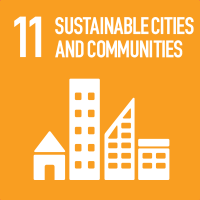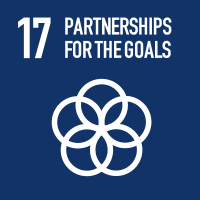Studying at the University of Verona
Here you can find information on the organisational aspects of the Programme, lecture timetables, learning activities and useful contact details for your time at the University, from enrolment to graduation.
Type D and Type F activities
This information is intended exclusively for students already enrolled in this course.If you are a new student interested in enrolling, you can find information about the course of study on the course page:
Laurea magistrale in Governance dell'emergenza - Enrollment from 2025/2026| years | Modules | TAF | Teacher |
|---|---|---|---|
| 1° 2° | Italy in the world (2 cfu) | D |
Giulia Bazzoni
(Coordinator)
|
| years | Modules | TAF | Teacher |
|---|---|---|---|
| 1° 2° | STEEL MILL NLMK VERONA - LOGISTICS E 2023 SUSTAINABILITY REPORT | D | Not yet assigned |
| 1° 2° | INFRASTRUCTURE, LOGISTICS, INDUSTRY, AEROSPACE: STRATEGIES AND ACTIONS IN THE NEW GEOPOLITICS | D | Not yet assigned |
| 1° 2° | PROJECT WORK - AMALGAMA CBRN (FIRST AID AND CCA MED LINE) | F |
Matteo Nicolini
(Coordinator)
|
| 1° 2° | Project work “workshop on emergencies: theory and practice” | F | Not yet assigned |
| years | Modules | TAF | Teacher |
|---|---|---|---|
| 1° 2° | Italy in the world (2 cfu) | D |
Giulia Bazzoni
(Coordinator)
|
| years | Modules | TAF | Teacher |
|---|---|---|---|
| 1° 2° | LAB.: SOCIAL SUSTAINABILITY LEGAL CLINIC | F |
Venera Protopapa
(Coordinator)
|
| years | Modules | TAF | Teacher |
|---|---|---|---|
| 1° 2° | GREEN WELLBEING IN OUR CITIES. IN SEARCH OF DATA, NEEDS AND DESIGN EXPERIMENTS. | D | Not yet assigned |
| 1° 2° | Project work - Emergency management in Italy | F | Not yet assigned |
| years | Modules | TAF | Teacher |
|---|---|---|---|
| 1° 2° | LAB.: SOCIAL SUSTAINABILITY LEGAL CLINIC | F |
Venera Protopapa
(Coordinator)
|
| years | Modules | TAF | Teacher |
|---|---|---|---|
| 1° 2° | GREEN WELLBEING IN OUR CITIES. IN SEARCH OF DATA, NEEDS AND DESIGN EXPERIMENTS. | D | Not yet assigned |
| 1° 2° | Project work - Emergency management in Italy | F | Not yet assigned |
| years | Modules | TAF | Teacher |
|---|---|---|---|
| 1° 2° | Italy in the world (1 cfu) | D | Not yet assigned |
| 1° 2° | Project work - la risposta operativa nella gestione dei processi emergenziali | F | Not yet assigned |
| 1° 2° | Transnational labor law as a spiderweb | D | Not yet assigned |
Public Economics of Emergencies (2024/2025)
Teaching code
4S012422
Teacher
Coordinator
Credits
6
Language
Italian
Scientific Disciplinary Sector (SSD)
SECS-P/03 - PUBLIC ECONOMICS
Period
2° periodo lezioni - GEM (aprile/maggio), 2° periodo lezioni - GEM (febbraio/aprile)
Courses Single
Authorized
Prerequisites and basic notions
No prior knowledge is required. Basic concepts related to Public Economics will be covered during the course.
Program
1. Definition and types of emergencies and economic assessment of damages.
2. The theoretical reasons for public intervention in emergency situations.
3. Areas and forms of public intervention in emergency situations.
4. Disaster risk and information systems for emergency management.
5. "Disaster Risk" in the Italian context.
6. The contribution of the local dimension to prevent and manage emergency situations in Italy.
7. Innovative and sustainable approaches for the ex-ante and ex-post governance of emergencies.
8. The analysis of case studies.
Teaching materials and a detailed syllabus will be made available on the University’s Moodle page dedicated to the course.
Bibliography
Didactic methods
The teaching methods consist of lectures, analysis and interpretation of empirical works and databases, as well as possible guest speakers on specific topics. Active participation of students will be encouraged during the lectures through questions, group discussions, and sharing of perspectives. Practical exercises will also be organized, where students will solve real-world problems by applying the knowledge they have acquired.
Students will develop individual or group projects on topics proposed by the professor, which will then be presented and discussed collectively in class.
The final evaluation will take into account active participation during the lessons, the presentation of the in-depth project, and a final oral exam.
The lectures will be held in Italian.
Further information about the course organization will be provided on the course's Moodle page.
Learning assessment procedures
The assessment of learning and skill development is carried out through a final oral exam with theoretical and practical questions covering the entire course syllabus.
During the semester, assignments and activities with specific methods and deadlines defined by the professor will be given, and these will contribute to the final evaluation.
Evaluation criteria
**Knowledge and understanding**: assess whether students have acquired and understood the fundamental content of the course, demonstrating mastery of concepts, theories, and terminology.
**Application of knowledge**: assess the ability of students to contextualize theoretical notions and apply them to analyze real cases, solve problems, and develop critical reasoning.
**Communication skills**: assess the ability to articulate ideas clearly, coherently, and accurately, using appropriate language.
**Critical thinking**: assess the ability to logically interpret information and express well-founded and substantiated opinions.
**Synthesis skills**: assess the ability to select key concepts and present them in a concise yet comprehensive manner.
**Formal accuracy**: assess adherence to instructions, content organization, and the correct use of citations and references.
Criteria for the composition of the final grade
The final grade is determined by the assessment of the oral exam. For students who participated in the practical exercises proposed by the professor during the course, the final grade will also take into account the results achieved in those exercises.
Exam language
Italiano




